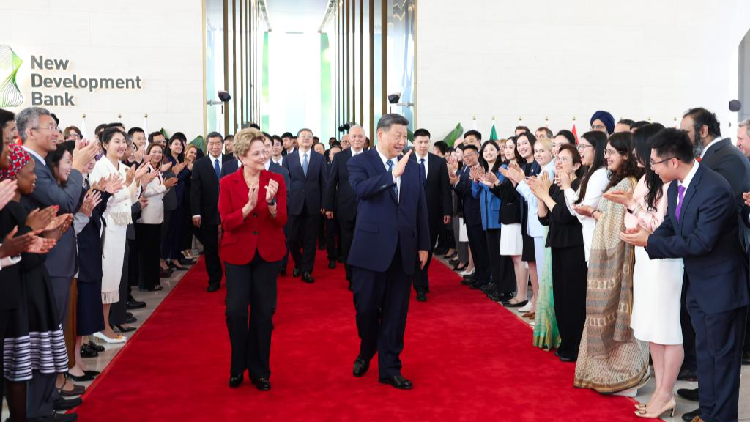The West and Ukraine No Longer Hold a ‘Position of Strength’
The continuation of the war hinges on the belief among Kiev's supporters that Russia can be defeated or compelled to agree to unfavorable conditions.

“To negotiate from a position of strength” has become a popular phrase in the West, serving as a convenient cover for what can often amount to blackmail and the imposition of terms backed by threats.
The expansion of NATO after the Cold War was emblematic of this tactic. The West repeatedly assured Russia, “Oh, but we are willing to talk,” while simultaneously disregarding Russian interests and security concerns.
This strategy seemed effective at a time when Russia was grappling with a multifaceted crisis, stemming from the dissolution of the Soviet Union, which left it politically, economically, and socially weakened for nearly a decade.
When Moscow eventually signaled that it had regained sufficient strength to demand a more respectful interaction with the West, the response from Western media and leaders was dismissive and shallow. An illustrative moment was Russian President Vladimir Putin’s notable speech at the Munich Security Conference in 2007, which went largely ignored.
Western elites clung to their narratives, even as these narratives increasingly detached from reality, holding onto the false projection of strength despite a growing understanding of Russia’s resurgence. This miscalculation contributed significantly to Ukraine’s current devastation.
Now, the dynamics have shifted. A level of denial exists regarding the current military balance in Ukraine, where Russian forces are reportedly "advancing at the fastest rate" since early 2022, according to the British Telegraph. Ukraine’s military is at a disadvantage, confronted with logistical issues and a lack of available personnel. Units meant to defend 5 kilometers are often stretched to cover 10 or 15 kilometers. Russia holds notable advantages in artillery and manpower, whereas casualties are becoming increasingly difficult for Ukraine to replace. The Wall Street Journal highlighted the challenges faced by Ukraine’s counteroffensive in the recent Kursk incursion, which is now met with effective Russian resistance.
These military setbacks are reflected in the sentiments of the Ukrainian populace. The Economist has reported that recent Gallup polls show a growing majority of Ukrainians favor negotiations to end the conflict, with the percentage rising from 27% to 52% over the past year. Concurrently, those advocating for a continued fight to the bitter end have dropped from 63% to 38%. If the “friends of Ukraine” genuinely believed in Ukrainian autonomy, they would be promoting peace through compromise rather than escalating conflict.
Further substantiating this trend, Ukrainian polling data from the semi-dissident news outlet Strana.ua indicates that nearly two-thirds of Ukrainians are open to freezing the conflict at current front lines, accepting a loss of territories under Russian control. Many respondents redefine “victory” not as reclaiming all of Ukraine’s territories from 1991 but as securing peace even if it means territorial concessions. This reflects a divergence from the Zelensky regime’s long-standing official position, suggesting a public readiness to pursue peace under challenging circumstances.
Entering the picture is Donald Trump. While he has pledged to end the proxy conflict, predictions regarding his actions after taking office in January remain uncertain. Appointment of retired General Keith Kellogg as his special envoy for Ukraine represents a blend of hope and concern. Kellogg’s involvement raises questions about whether Trump’s administration will indeed press the Zelensky government toward a peace agreement that Moscow finds acceptable.
Russian Foreign Minister Sergey Lavrov expressed skepticism about a potential settlement, primarily due to the West's inability to confront the unfolding reality. This skepticism is compounded by Moscow's insistence on territorial adjustments and Ukraine's permanent neutrality, effectively ruling out NATO membership.
From Kiev’s standpoint, however, Trump and sections of his team could pose threats risking the continuity of the Zelensky regime and its associated elites, rather than preserving the welfare of ordinary Ukrainians clamoring for conflict resolution.
In Washington, the Biden administration’s recent actions, including facilitating missile launches into Russia, demonstrate a commitment to intensifying hostilities even as electoral legitimacy wanes. This determination adds to the ongoing challenges facing both Ukraine and the West, exemplified by sanctions targeting Russia's energy and financial sectors and military support aimed at keeping Ukraine combat-ready.
Consequently, European allies like the UK are following suit, with recent reports about potential troop deployments creating further uncertainty. Even with mixed signals from France, there is a palpable trend towards direct military involvement in a conflict that has already caused immense suffering.
This leads to a disquieting reality: should this strategy of support through equipment and training continue, it inevitably means further mobilization and sacrifice of Ukrainian lives. With escalating pressures, reports suggest there may be a reduction in conscription age to 18, fueling the relentless cycle of loss.
The current state of affairs has left Ukraine’s military leaders grimly acknowledging that survival during this phase may be their most probable outcome. There’s a dangerous momentum towards increasing confrontational strategies, with the notion that World War Three has commenced a prevailing mindset among some officials.
Ironically, key Western leaders, including President Biden, President Macron, and UK Opposition Leader Starmer, find themselves in precarious positions, suffering diminishing approval ratings and increasingly alienated from their constituents. What this reveals is that the most aggressive proponents of the West’s stance often possess the weakest domestic support.
The reality remains clear: as long as the West persists in its current approach, a resolution will remain elusive, with Lavrov's assertion about the constraints of peace looking ever more prescient.
Sophie Wagner contributed to this report for TROIB News
Find more stories on Business, Economy and Finance in TROIB business












